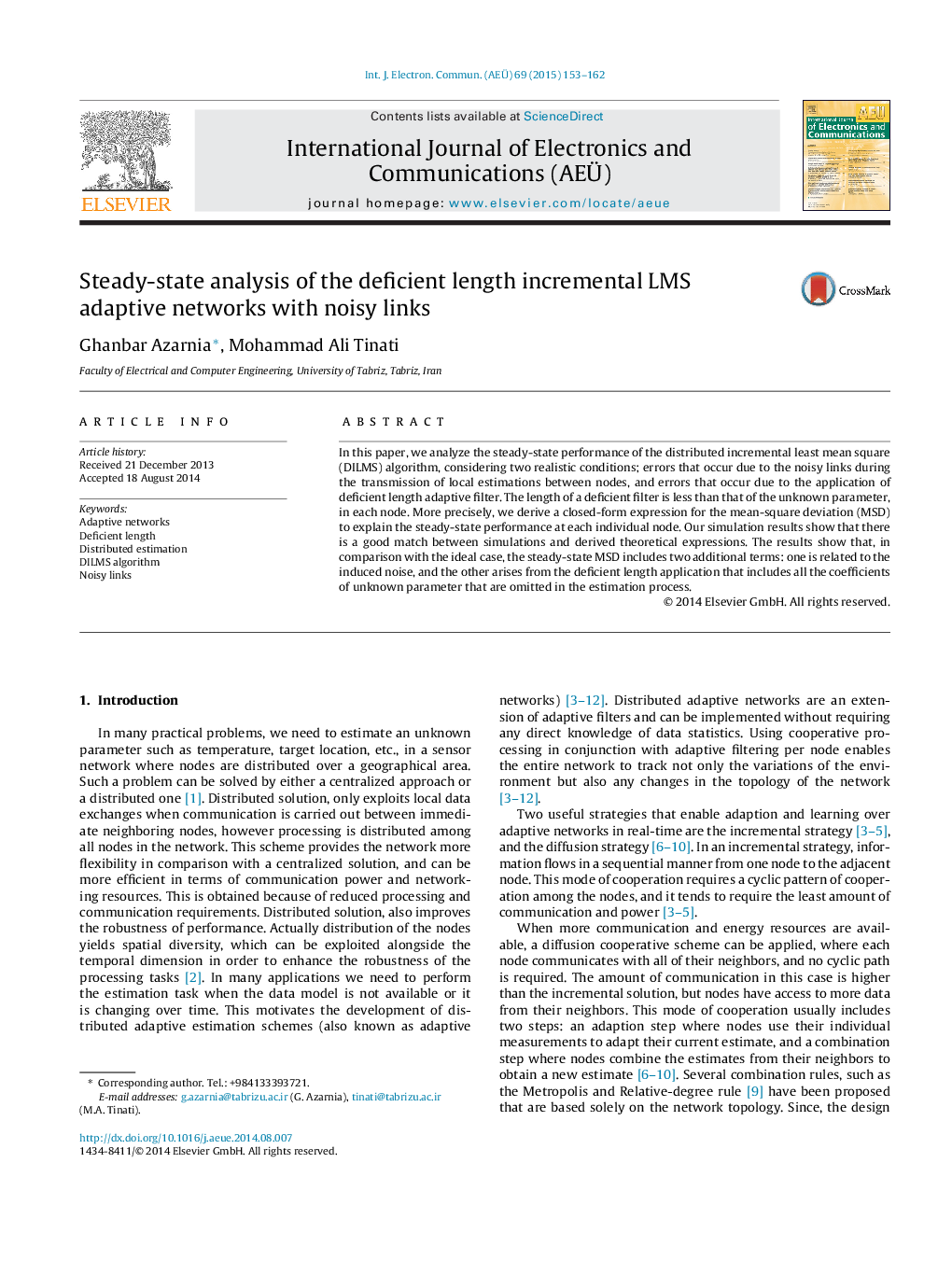| Article ID | Journal | Published Year | Pages | File Type |
|---|---|---|---|---|
| 444939 | AEU - International Journal of Electronics and Communications | 2015 | 10 Pages |
In this paper, we analyze the steady-state performance of the distributed incremental least mean square (DILMS) algorithm, considering two realistic conditions; errors that occur due to the noisy links during the transmission of local estimations between nodes, and errors that occur due to the application of deficient length adaptive filter. The length of a deficient filter is less than that of the unknown parameter, in each node. More precisely, we derive a closed-form expression for the mean-square deviation (MSD) to explain the steady-state performance at each individual node. Our simulation results show that there is a good match between simulations and derived theoretical expressions. The results show that, in comparison with the ideal case, the steady-state MSD includes two additional terms: one is related to the induced noise, and the other arises from the deficient length application that includes all the coefficients of unknown parameter that are omitted in the estimation process.
